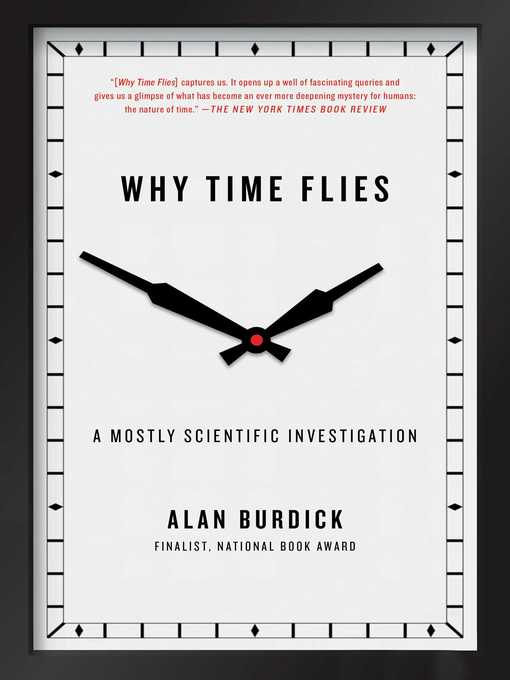
Why Time Flies
A Mostly Scientific Investigation
کتاب های مرتبط
- اطلاعات
- نقد و بررسی
- دیدگاه کاربران
نقد و بررسی

December 19, 2016
Burdick (Out of Eden), a staff writer at the New Yorker, brings a casual, evocative style to his inquiry into the nature of time. He surveys historical conceptions of and experiments about the phenomenon, recounts his own chatty visits to the laboratories of experts who’ve devoted their life’s work to the subject, travels to the places where aspects of time manifest dramatically, analyzes how animals and human babies view the passage of time, and draws connections to the ephemera of his own experience. Burdick relates the scientific elements here with unusual clarity, making sure the book is not merely a collection of intellectually stimulating physiological and psychological trivia. Coffee-table conversationalists will appreciate his discussions of such topics as the methods for synchronizing world time, exactly how long “now” is, and how circadian rhythms work across nature. Burdick’s orientation is as philosophical as it is scientific, and he provides thoughtful background on such themes as time as four-dimensional geometry and the question “Are we born into time or is time born into us?” Returning regularly to the idea that time is a property of the mind that does not exist without a subject to perceive it, Burdick places his readers in the centers of their temporal universes.

December 15, 2016
An insightful meditation on the curious nature of time by New Yorker staff writer Burdick (Out of Eden: An Odyssey of Ecological Invasion, 2006). As the author notes, his journey through this slippery subject began with his interest in the way time influences the functioning of our cells and cellular machinery rather than the "physical and mathematical aspects of time [that] continue to be debated by the great minds of cosmology." He points to the contradiction between our search for precision in clocks and the reality that, by its very nature, our measurement of time is imprecise; it is a social construct rather than a measurable feature of reality as such. Not only does "no single clock, no single committee, no individual alone" regulate our unique, individual perception of time, but our individual internal clock is a collective activity of different regions of our brain. "Time is a social phenomenon," writes Burdick, and we never directly perceive its passage. Because of this, we more easily develop an illusion of permanence that allows us to overlook long-term consequences of actions or inaction. Global warming is a case in point. Our failure to connect what the author calls "the world of temperature and the world of time" is particularly troubling--e.g., as it relates to the migration and breeding cycles of arctic birds. On a certain level, even our perception of an instant of time--the here and now--has become a social construct. The regulation of clock time was a local matter until the 19th century, when the development of commerce, industry, railroad, and telecommunications made a universal standard necessary. Burdick introduces another fascinating element into his meditation on our perception of the passage of time brought about by the advent of films. As he writes, "film and video have become the primary metaphor offered to explain, in popular terms, how the brain perceives time." A highly illuminating intellectual investigation.
COPYRIGHT(2016) Kirkus Reviews, ALL RIGHTS RESERVED.

























دیدگاه کاربران